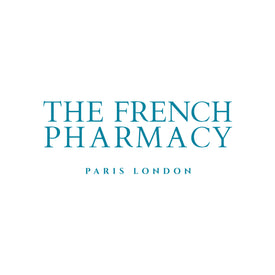Treat Hormonal Acne
Synonymous with adolescence in the collective imagination, acne can persist - or even appear - in adulthood.
All acne is hormonal. Acne occurs when your body produces an increased amount of certain hormones that stimulate the production of sebum.
Normal sebum production keeps your skin fresh, smooth and healthy. However, overproduction of sebum can clog hair follicles and cause you to develop acne.
Everyone has a different sensitivity to certain hormones, meaning an increase in hormone levels that could cause one person to break out with acne could have no effect on a person with lower sensitive to acne-causing hormones.
The biggest culprit is testosterone, an androgen hormone that can stimulate sebum production and increase clogging of your hair follicles.
Hormones exist in a delicate balance in your body. Even a small increase in one hormone can have a noticeable effect on your skin.
If acne is always hormonal, its late onset is related to factors that can be identified… And therefore limited. Acne may, for example, be related to the prescription of drugs (especially hormone or cortisone treatments) or to the exercise of certain professions (especially for all those who work in contact with chlorine or tar).
For others, it is special circumstances that will trigger the appearance of spots. The most common is abuse of cosmetics or the use of poor-quality cosmetics. Products that are too greasy, especially too oily, may clog the pores of the skin. Over cleansing your face destroys the normal cutaneous flora and will leave room for more aggressive microbes.
What is the appropriate care?
You must adapt your skincare to prevent further 'attacks' to the skin. First step: swap your soap for a mild cleanser. And do not wash your face excessively. In the evening, use a non-comedogenic makeup remover. Then rinse the entire face with warm water and apply a non-alcoholic tonic lotion followed by a moisturiser, which should also be non-comedogenic.
Some of the most common treatments are vitamin A derivatives that can be used locally or generally. Retinoids work by speeding up your skin’s growth process and causing your skin to turn over more quickly than normal. But be careful, these treatments do make the skin thinner and therefore more sensitive to the sun. Avoid exposure and rely on maximum sun protection at all times. It is also possible to prescribe anti-androgens to reverse the effects of testosterone.
Natural treatments
Phytotherapy can help alleviate mild to moderate acne. For example you can clean your face with an infusion of thyme or lavender. Those can also be used to make warm compresses to be applied directly to spots. A traditional remedy that has been widely proven are green clay masks, with optional sage oil. It protects the epidermis from microbes and bacteria and absorbs excess sebum. It can even have regenerating power for mature skins.
Dr Marine Vincent recommended products
La Roche Posay Effaclar H Cream Cleanser
La Roche Posay Toleriane Cleanser
La Roche Posay Toleriance Riche Moisturiser


